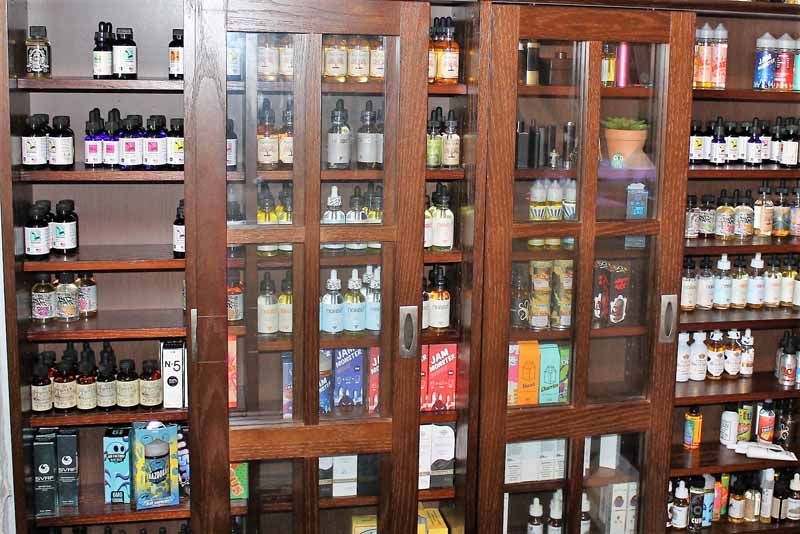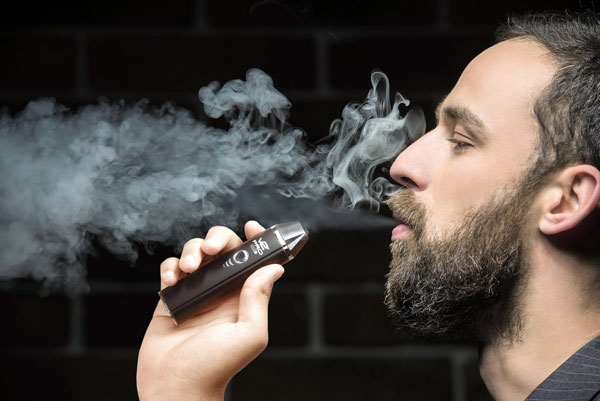A coalition of health-advocacy groups in the US state of Montana want cigarette taxes to rise by $2 a pack to help maintain an expansion of Medicaid, which is a joint federal and state program that helps with medical costs for some people with limited income and resources.
According to a story by Eric Whitney for New Hampshire Public Radio, Montana legislators
expanded Medicaid by a very close vote in 2015.
The measure passed with the condition that the expansion of Medicaid eligibility in the state would expire in 2019 unless lawmakers voted to reapprove it. And once it expired, people who benefited from Medicaid under the expansion would lose that benefit.
Fearing legislators might not renew funding for Medicaid’s expanded rolls, Montana’s hospitals and other health advocacy groups came up with a ballot measure to keep it going with funds generated by a tobacco tax.
Whitney said in his report that the measure, which is on today’s ballot, became the most expensive ballot measure race in Montana’s history – drawing more than $17 million in opposition funding from tobacco companies alone, and in a state with fewer than 200,000 smokers.
Most of that money had come from cigarette maker Altria, he said, and, according to records from the National Center for Money in Politics, that amount was more than Altria had spent on any state proposition nationwide since the center started keeping track in 2004.
Amanda Cahill, who works for the American Heart Association and is spokesperson for Healthy Montana, the coalition backing the measure, said coalition members knew big tobacco would fight back.
“We poked the bear, that’s for sure,” Cahill said, though she added that the measure had been introduced not with the intention of stirring up trouble, but because it was the right thing to do.
If ballot initiative I-185 passes, it will mean an additional $2 per pack tax on cigarettes, and a tax on other tobacco products. It would also levy a tax on electronic cigarettes, which are currently not taxed in Montana.
Nancy Ballance, a Republican representative in the Montana state legislature opposes the measure.
“In general, I am not in favor of what we like to refer to as ‘sin taxes,’ ” Ballance says. “Those are taxes that someone determines should be [levied] so that you change people’s behavior.”
Tag: United States

Big tax rise proposed

Targeting quit strategies
Tobacco control efforts targeted for those with mental health problems are urgently needed to increase quit rates for this group of smokers and to lower the prevalence of smoking overall, according to a story at medicalxpress.com quoting Renee Goodwin, PhD, Department of Epidemiology, Columbia Mailman School of Public Health (CMSPH).
Although increasing numbers of US smokers are quitting cigarettes, those with serious psychological distress are much less likely to do so.
A new study by scientists at the CMSPH and The City University of New York found that individuals with mental health problems quit cigarettes at half the rate of those without psychological distress. The findings are published in the journal Nicotine and Tobacco Research.
“Overall, tobacco cessation programs have been very successful, but our research suggests that people with mental health problems have not benefited from these,” said Goodwin, the senior author of the report.
“It is increasingly clear that tobacco control efforts targeted for those with mental health problems are urgently needed to increase quit rates for this group of smokers and to lower the prevalence of smoking overall.”
FDA to hold e-cig meeting
The US Food and Drug Administration is planning to hold a ‘public hearing’ on December 5 because it believes that a rising number of young people are becoming addicted to vaping.
A note issued through the FDA’s Center for Tobacco Products said that, on November 2, the FDA commissioner, Scott Gottlieb, M.D., had issued a statement on the agency’s ‘concern with rising numbers of youth becoming addicted to e-cigarettes and the current lack of adequate research or approved treatments to help kids quit using e-cigarettes or other tobacco products’.
‘To help address these issues, the agency will hold a public hearing at the FDA White Oak Campus on December 5 to hear public perspectives on the available scientific evidence related to drug therapies for e-cigarette cessation as it relates to youth users and how the FDA may support further research in this area’.
‘Individuals interested in presenting at the hearing must register by November 23, 2018. Those interested in attending the hearing in person or watching the free, live webcast must register by December 3, 2018.
‘Regardless of attendance at the public hearing, interested parties may also submit a public comment to docket FDA-2018-N-3952 starting Monday, November 5, 2018, through January 2, 2019.
‘Further information, including instructions for presenters, is included in the Federal Register notice.’
E-issues need addressing
Electronic cigarettes are starting to attract the attention of people concerned about littering, according to a story by Mari A. Schaefer at www2.philly.com (Philadelphia).
While single-use plastic straws, bags, and coffee pods had already captured the attention of the public and legislatures looking to ban products that wind up littering the landscape, Schaefer said, e-cigarettes had begun to show up on streets and shores, catching officials off-guard and presenting the challenge of how to deal with litter that was part recyclable and part hazardous.
“We started seeing them a number of years ago,” said Cindy Zipf, executive director of Clean Ocean Action, a non-profit organization that compiles biannual beach clean-up reports from the New Jersey Shore. “Most of us didn’t even know what they were,” she said.
Schaefer said that each e-cigarette had five components – residual nicotine, plastic, lithium batteries, aluminium, and fabric – each of which had to be disassembled and recycled separately. The products came in various shapes and sizes, from large, refillable tank devices to rechargeable devices that incorporated single-use plastic pods that looked like USB flash drives.
Meanwhile, Philadelphia’s environmental planning director, Scott McGrath, said the city currently was investigating how to recycle e-cigarette waste.
The city had contacted its third-party electronic- and hazardous-waste vendors for guidance because the e-cigarettes fell into both categories. Of particular concern, he said, were the lithium batteries used in some products, which were water-reactive and which could start fires if not disposed of properly.
Results webcast scheduled
Universal Corporation is scheduled to webcast a conference call on November 8 following the release of its results for the second quarter of fiscal year 2019 after market close on that day.
The conference call will begin at 17.00 Eastern Time and will be hosted by Candace C. Formacek, vice president and treasurer.
A live webcast of the conference call will be available online on a listen-only basis at www.universalcorp.com, while a replay will be available at the same site through February 8.
A taped replay of the call will be available also from 20.30 on November 8 through November 22 at (855) 859-2056, using the telephone replay identification number 4048119.
Attempt to calm moral panic
A group of academics and tobacco control and public health experts is trying to convince the US Food and Drug Administration to slow down and consider the risks of hasty regulation, according to a piece by Jim McDonald at Vaping360.
The National Tobacco Reform Initiative (NTRI) is said to have sent a letter to Dr. Scott Gottlieb, calling on the FDA commissioner to hold a summit of stakeholders to discuss the FDA’s policy on vapor products and vaping.
In introducing his piece, McDonald said the FDA seemed dead set on restricting the vapor industry very soon. The agency had given JUUL Labs and the four major tobacco companies that also sell vapor products 60 days to submit plans to eliminate sales to teenagers. That 60-day deadline expired soon after next week’s elections.
Meanwhile, McDonald said that NTRI co-ordinator Allan Erickson had written to Gottlieb saying that to address the situation fully would require the involvement and support of not only the FDA, but other stakeholders as well. Erickson, a former American Cancer Society vice president, believes that e-cigarettes can play a part in tobacco control efforts to reduce smoking.
‘We therefore wish to recommend that the FDA/CTP [the FDA’s Center for Tobacco Products] sponsor a national dialogue related to youth use of tobacco and nicotine products as well as the need to provide the 30 million adult smokers in this country with lower risk alternative tobacco and nicotine products, to be held sometime in early 2019,’ he said in his letter.
The NTRI leadership includes David Abrams and Ray Niaura of New York University (both formerly with the Truth Initiative), former American Heart Association vice president Scott Ballin, and former American Cancer Society president John Seffrin. The organization’s advisory group includes Clive Bates and Iowa Attorney General Tom Miller. Miller was one of the state attorneys general who sued the tobacco companies, leading to the 1998 Master Settlement Agreement. He was the chair of the Truth Initiative board last year.
McDonald’s piece says, however, that the NTRI letter may be too late to affect Gottlieb’s thinking.
‘He’s shown no signs of cooling his reckless “epidemic” rhetoric,’ McDonald said. ‘There’s nothing the FDA commissioner needs more now than wisdom from clear-headed and open-minded veterans of the tobacco wars. But he appears less and less likely to listen.’
Devices vaporized
Philip Morris USA’s domestic cigarette shipment volume during the third quarter to the end of September, at 29,698 million, was 3.7 percent down on that of the third quarter of 2017, 30,828 million.
Marlboro volume was down by 3.2 percent to 25,611 million, while the volume of the company’s other premium brands was down by 6.0 percent to 1,473 million. Its discount-brand volume was down by 6.8 percent to 2,614 million.
In presenting its third-quarter and nine-month results, Altria said that industry-wide domestic cigarette volumes had declined by an estimated 4.5 percent during the third quarter. The 3.7 percent decline in PM USA’s shipments was said to have been driven primarily by the industry’s rate of decline and retail share losses, partially offset by trade inventory movements. When adjusted for trade inventory movements, shipments were said to have fallen by an estimated 5.0 percent.
Meanwhile, PM USA’s cigarette shipments during the first nine months of 2018, at 84,486 million, were down by 6.3 percent on those of the first nine months of 2017, 90,124 million.
Marlboro volume was down by 5.8 percent to 72,793 million, while the volume of the company’s other premium brands was down by 6.2 percent to 4,286 million. Its discount-brand volume was down by 10.2 percent to 7,407 million.
Altria reported that for the first nine months of 2018, industry-wide volumes had declined by an estimated 4.5 percent. The 6.3 percent decline in PM USA’s shipments was said to have been driven primarily by the industry’s rate of decline, retail share losses and trade inventory movements. When adjusted for trade inventory movements, shipments were said to have fallen by an estimated 5.5 percent.
PM USA’s domestic-market retail share during the three months to the end of September, at 50.1 percent, was down by 0.5 of a percentage point on that of the third quarter of 2017.
Marlboro’s market share was down by 0.1 of a percentage point to 43.1 percent, while the share of the company’s other premium brands was down by 0.1 of a percentage point to 2.6 percent, and the share of its discount brands was down by 0.3 of a percentage point to 4.4 percent.
Middleton’s cigar shipment volume during the first three months, at 411 million, was increased by 6.8 percent on that of the three months to the end of September 2017, 385 million, as Black & Mild volume rose by 7.1 percent to 408 million and other-cigar volume fell by 25 percent to three million.
USSTC’s domestic smokeless products shipment volume during the third quarter, at 213.4 million cans and packs, was increased by 0.4 percent on that of the three months to the end of September 2017, 212.6 million.
Shipments of Copenhagen and Skoal, taken together, were down by 0.2 percent to 195.4 million packs and cans, while shipments of other brands were increased by 6.5 percent to 18.0 million packs and cans.
USSTC’s retail share of the domestic smokeless products market during the three months to the end of September, at 54.1 percent, was increased by 0.1 of a percentage point.
The share of Copenhagen and Skoal, taken together, was unchanged at 50.7 percent, while the share of the company’s other brands increased by 0.1 of a percentage point to 3.4 percent.
Altria said that, in response to a request by the US Food and Drug Administration that it (and several other companies) address the issue of the use of e-vapor products by those underage, it was removing from the market its Nu Mark MarkTen Elite and Apex by MarkTen pod-based products until those products received a market order from the FDA or the youth issue was otherwise addressed.
‘For our remaining MarkTen and Green Smoke cig-a-like products, Nu Mark will sell only tobacco, menthol and mint varieties,’ Altria said. ‘Nu Mark will discontinue the sale of all other flavor variants of our cig-alike products until these products receive a market order from the FDA or the youth issue is otherwise addressed.’
In addition, Altria said it would support federal legislation to establish 21 as the minimum age to purchase any tobacco product [which in the US are taken to include e-cigarettes].
About 80 percent of Nu Mark’s e-vapor volume in the third-quarter of 2018 is expected to remain on the market after the removal of MarkTen Elite and Apex by MarkTen pod-based products and the discontinuation of the sale of flavor variants of Nu Mark’s cig-a-like products, other than tobacco, menthol and mint varieties.
PM USA is said to be ready to deploy its initial lead market plans for IQOS upon FDA authorization, while the FDA has accepted and filed for substantive scientific review USSTC’s modified risk tobacco product application for Copenhagen Snuff submitted by USSTC in the first quarter.
Altria’s 2017 third-quarter reported diluted earnings per share (EPS) were increased by 6.2 percent to $1.03 on those of the third quarter of 2017, while adjusted diluted EPS, which excludes the impact of special items, increased by 20.0 percent to $1.08.
“Altria delivered excellent third-quarter adjusted diluted earnings per share growth of 20 percent and continued to return large amounts of cash to our shareholders,” Howard Willard, Altria’s chairman and CEO, was quoted as saying.
“Our tobacco businesses are successfully executing against their strategies, while making strategic investments to drive long-term success.
“We believe our year-to-date performance positions us well to deliver on our full-year plans. As a result, we are tightening our guidance range to $3.95 to $4.03, representing a growth rate of 16.5 percent to 19 percent.”
Figuring the 'epidemic'
In a piece published at reason.com, Jacob Sullum makes the point that it is impossible for the public to evaluate the ‘epidemic’ of vaping among young people in the US because the relevant figures have not been made available.
Sullum, who is a senior editor at Reason magazine and a nationally syndicated columnist, said that when the commissioner of the Food and Drug Administration, Scott Gottlieb, threatened last month to crack down on vaping products in response to ‘an epidemic of e-cigarette use among teenagers,’ he alluded to ‘preliminary data’ showing that ‘youth use of e-cigs is rising very sharply’.
‘Although we still have not seen those numbers, that has not stopped Gottlieb from making policy decisions based on them, including changes that could limit the appeal and availability of products he concedes have enormous potential to reduce the harm caused by smoking,’ Sullum said.
Later in his piece, Sullum said that it was hard to be sanguine about Gottlieb’s use of this secret information after watching a CNBC interview, which he describes in his piece. In that interview, Gottlieb had talked about banning online sales of e-cigarettes, for example, even though online vendors such as Juul used age verification systems and the vast majority of illegal sales to minors occurred in brick-and-mortar stores, as Gottlieb conceded.
“We recognize [e-cigarettes] as a viable alternative for adult smokers who want to get access to satisfying levels of nicotine without all the harmful effects of combustion,” Gottlieb was quoted as saying. “If we could switch every adult smoker to an e-cigarette, it would have a profound public health impact.”
Yet, Sullum said, Gottlieb was ready to discourage that switch by making e-cigarettes less appealing (by restricting flavors, for example) and harder to get (by banning sales outside of adults-only vape shops, another idea he floated), all based on an ‘epidemic’ that was impossible to evaluate without the data he was not letting most people see.
Drug link to lung cancer
Millions of ‘Americans’ take angiotensin-converting enzyme (ACE) inhibitors to lower their blood pressure, but a new study suggests these drugs might increase their odds of developing lung cancer, according to a story by Steven Reinberg for HealthDay citing a new study.
But lead researcher Laurent Azoulay, an associate professor of epidemiology and oncology at McGill University, Montreal, Quebec, Canada, cautioned that the research was based on an observational study that could not prove that these drugs caused lung cancer.
Among people taking the drugs for more than five years, the increased risk might be as high as 14 percent, which could represent a large number of patients, the study authors noted.
“The silver lining of our findings is that while we found an association, the risk at the individual patient level is likely low, even after 10 years of use,” Azoulay was quoted as saying.
“For this reason, this should not deter patients from taking these drugs, should their physician deem the treatment appropriate.”
FDA blocking progress
The first electronic cigarette to receive UL 8139 certification, a safety standard that evaluates the electrical and battery systems of vaping devices, will go on sale in Canada next week, according to a story by Herb Weisbaum at nbcnews.com.
But it won’t be available in the US.
Weisbaum said the vaping industry blamed the US Food and Drug Administration, which regulates tobacco products, including ‘deemed’ tobacco products such as e-cigarettes, for preventing US citizens from buying safety-enhanced devices.
“They have locked us into antiquated technologies,” Tony Abboud, executive director of the Vapor Technology Association, was quoted as saying. “The US Government is suppressing innovation in a way that can only harm consumers going forward.”
As reported here on October 16, UL, the global safety company that tests and certifies tens of thousands of consumer products each year, now has a safety standard for electronic cigarettes: ANSI/CAN/UL 8139, Electrical Systems of Electronic Cigarettes and Vaping Devices. This standard has been recognized by the American National Standards Institute (ANSI) and the Standards Council of Canada (SCC), covering the electrical, heating, battery and charging systems of these products.
But when Joyetech’s eGo A10 vapor pen, the first UL-certified vaping device, hits the market this month it will be sold in Canada but not the US.
Joshua Church, Joyetech’s chief regulatory and compliance officer, was quoted by Weisbaum as saying safety was important to his company. “We did this [UL certification] to protect American consumers, but we can’t sell directly to them,” Church said in an exclusive interview from Shenzhen, China.
The problem is, as Weisbaum goes to some length to explain, that the FDA prohibits the sale of any new or modified e-cigarettes that were not sold in the US prior to August 8, 2016, without pre-market approval; for which it is only now developing guidelines.









